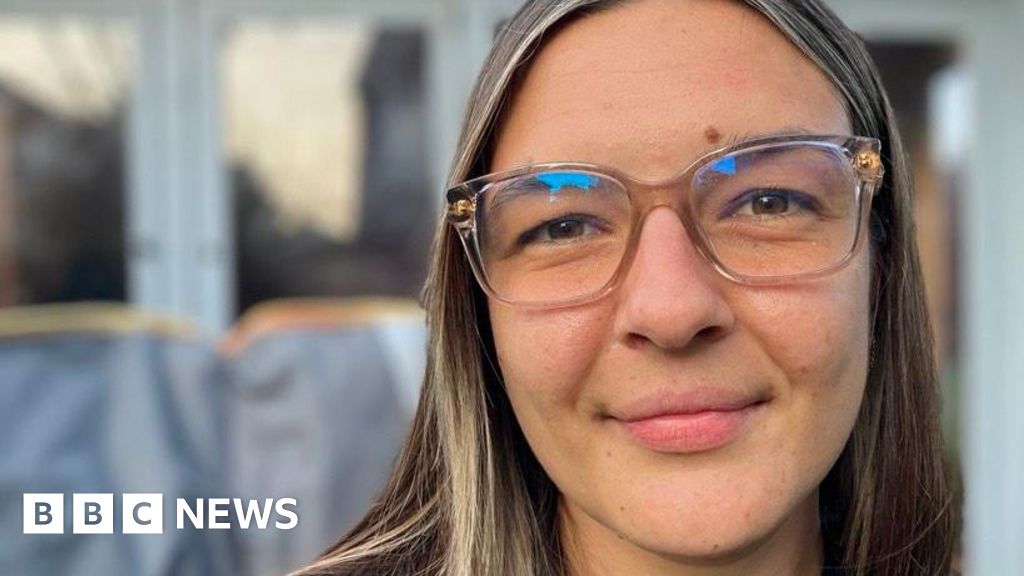The government wants 1.5 million new homes to be built in England by 2029 but, with theaverage house in the East costing £332,000, about nine times the average salary, what chance do young people have of getting on the housing ladder? Lauren Finch, 29, told BBC Politics East a mortgage broker advised her to ask for a pay rise, get a new job or find a partner to move in with. Living with her 28-year-old sister at her parent's home in Lowestoft, Suffolk, she often finds herself house-sitting for friends as a way to get some independence. She said her £24,000 salary at a GP surgery meant she could only afford a £90,000 home and would struggle to find a property in the area where she would feel safe. "I feel frustrated that I'm at this age and living at home and it is a little bit soul-destroying," she explained. Renting is an option she hopes to avoid: "People I know who rent, struggle to save any money for a (mortgage) deposit." Former Miss Cromer Charlotte Spendlove rents a room in a friend's house and said she received similar advice on getting on the housing ladder. "They tell you you have to do x, y and z. They've said I need to get an extra job. At one time I had three jobs. But it's not a way of life," she said. The 26-year-old believes people with second homes are driving up house prices and wants the government to look into the issue. The Ministry of Housing, Communities and Local Government said it inherited a "devastating housing crisis" and was providing support for first-time buyers. Average house pricesvary across the East of England, according to the Office for National Statistics: The average annual rent in the East of England is approximately £15,660, based on an average monthly rent of £1,305, a 4.2% increase on the previous year. Environmentalist and archaeologist Helen Geake, a former Green councillor from Suffolk, said: "We have a surplus of homes but they are being used in the wrong way, being used for second homes, or short-term lets, or empty. "Also, private rentals are a very inefficient use of a house. We have got to see more homes with owner-occupiers and socially rented." James Palmer, chair of regional business champion the Eastern Powerhouse, has called for better infrastructure to be built to support new housing. Speaking at a BBC Politics East special at the Big Sky Living development at Cringleford, on the outskirts of Norwich, he said: "The public transport in the East is appalling. "We need a long-term infrastructure plan to then deliver the homes." A Ministry of Housing, Communities and Local Government spokeswoman said: "We have inherited a devastating housing crisis. "As set out in our plan for change, we will build 1.5 million new homes and give working people the stability and security of a home they deserve. "We're committed to supporting first-time buyers with a new permanent mortgage guarantee scheme, helping them take their first crucial step on the ladder with a small deposit." BBC Politics East will be broadcast on Sunday, 22 June at 10:00 BST on BBC One in the East of England, and will beavailable after broadcast on BBC iPlayer.
Young people face 'soul-destroying' struggle to buy first homes
TruthLens AI Suggested Headline:
"Young Adults Struggle to Enter Housing Market Amid Rising Prices"
TruthLens AI Summary
The housing crisis in England poses a significant challenge for young people aspiring to purchase their first homes. The government has set an ambitious target of constructing 1.5 million new homes by 2029, yet the reality is stark. The average house price in the East of England stands at approximately £332,000, which is nearly nine times the average salary. This disparity is exemplified by the experiences of individuals like Lauren Finch, a 29-year-old working at a GP surgery, who earns £24,000 a year. Despite her efforts to save, she can only afford a property priced around £90,000, which is a daunting task in a market where safety and community feel are paramount. Finch's situation reflects the broader frustrations faced by many young adults who find themselves living with family members due to financial constraints. Renting is an option they wish to avoid, as it often hampers their ability to save for a mortgage deposit, leading to a cycle of instability and dependence on family support.
The conversation around the housing crisis is further complicated by the influence of second homeowners and the growing trend of short-term lets, which are seen as exacerbating the issue of affordability. Charlotte Spendlove, a former Miss Cromer, echoes similar sentiments, expressing frustration over the advice she has received to take on multiple jobs just to afford housing. The Ministry of Housing, Communities and Local Government acknowledges the inherited crisis and is attempting to address it through various initiatives, including a new mortgage guarantee scheme aimed at assisting first-time buyers. However, experts like environmentalist Helen Geake argue that the current housing stock is inefficiently utilized, with many homes lying empty or used for non-residential purposes. To truly alleviate the crisis, there is a call for better infrastructure to support new housing developments, as emphasized by James Palmer, chair of the Eastern Powerhouse. The need for a cohesive long-term plan that addresses both housing availability and the underlying economic factors is critical to ensuring that young people can realistically aspire to homeownership in the coming years.
TruthLens AI Analysis
You need to be a member to generate the AI analysis for this article.
Log In to Generate AnalysisNot a member yet? Register for free.
